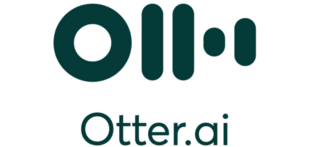External Coverage| June 2023
VentureBeat: Otter AI Chat Brings New Collaboration and Insight to Real-Time Voice Transcription
Article by Sean Michael Kerner via VentureBeat
Ever wanted to ask questions about a meeting while it’s still in progress? Otter AI Chat, a new capability from AI-powered voice transcription provider Otter, has now got you covered.
The new Otter AI chat functionality being announced today by the San Francisco startup gives users the power of generative AI as an integrated component of voice transcription. Otter has been busy expanding its voice transcription service in recent years, adding integration with popular conferencing technologies including Zoom and support for Microsoft Outlook. In February of this year the company expanded its OtterPilot AI functionality, bringing new automations to its voice transcription service. The company claims that its AI-powered service transcribes over one million spoken words every minute.
Now Otter is taking its AI a step further than just transcribing and providing a post-meeting summary. With the new Otter Chat capability, an integrated AI chatbot inside the user console enables users to ask questions about a meeting in progress.
A user could, for example, find out if a certain topic has already been discussed. Users can even ask about the sentiment of the meeting or of a specific speaker, and ask the AI to generate content based on the meeting, such as follow-ups and action items.
It’s an approach in many respects inspired by the success of OpenAI’s ChatGPT.
“ChatGPT is such a sensation — it shows that AI can understand human questions and can generate interesting answers,” Sam Liang, founder and CEO of Otter, told VentureBeat. “However, ChatGPT is mostly based on public knowledge; for corporate workers, their meetings are internal and … happening in real time.”
Otter has built its own type of LLM for Otter AI Chat
While Otter AI Chat is inspired by ChatGPT, it is not using the OpenAI technology. Rather Liang emphasized that his team has developed its own purpose-built AI technology to enable the new service.
Liang explained that OpenAI’s ChatGPT is based on a large language model (LLM) trained on public data that consists mostly of written content. ChatGPT provides a conversational interface between the human being and the AI.
Otter AI Chat is taking a somewhat different approach.
“We’re building the largest spoken large language model based on mostly verbal data,” Liang said. “The [spoken] verbal data has a lot of differences compared to written documents.”
With spoken verbal data, there is more interaction and speakers are often less formal and more casual. There is also the ability to better understand and derive sentiment from the tone of a speaker. Otter has been able to train on over a billion meetings the company has transcribed, while keeping all user information confidential.
Otter building a collaborative chat for AI
Liang said that rather than being just a human-to-bot interface, the Otter AI Chat interface enables what he referred to as “collaborative chat,” where all the people in a meeting can collaborate both with each other and the AI chatbot in real time.
“AI effectively joins human conversations,” Liang said.
Content contained in this blog post is not intended to and does not constitute investment advice. Your use of the information in this blog post and materials linked is at your own risk. Spectrum Equity does not make any guarantee or other promise as to any results that may be obtained from using this content. No one should make any investment decision without first consulting his or her own financial advisor and conducting his or her own research and due diligence. Past performance is not indicative of future results, and there is a possibility of loss in connection with an investment in any Spectrum Fund. To the maximum extent permitted by law, Spectrum Equity disclaims any and all liability in the event any information, commentary, analysis, and/or opinions prove to be inaccurate, incomplete or unreliable, or result in any investment or other losses. The specific companies identified above does not represent all of Spectrum’s investments, and no assumptions should be made that any investments identified were or will be profitable.

